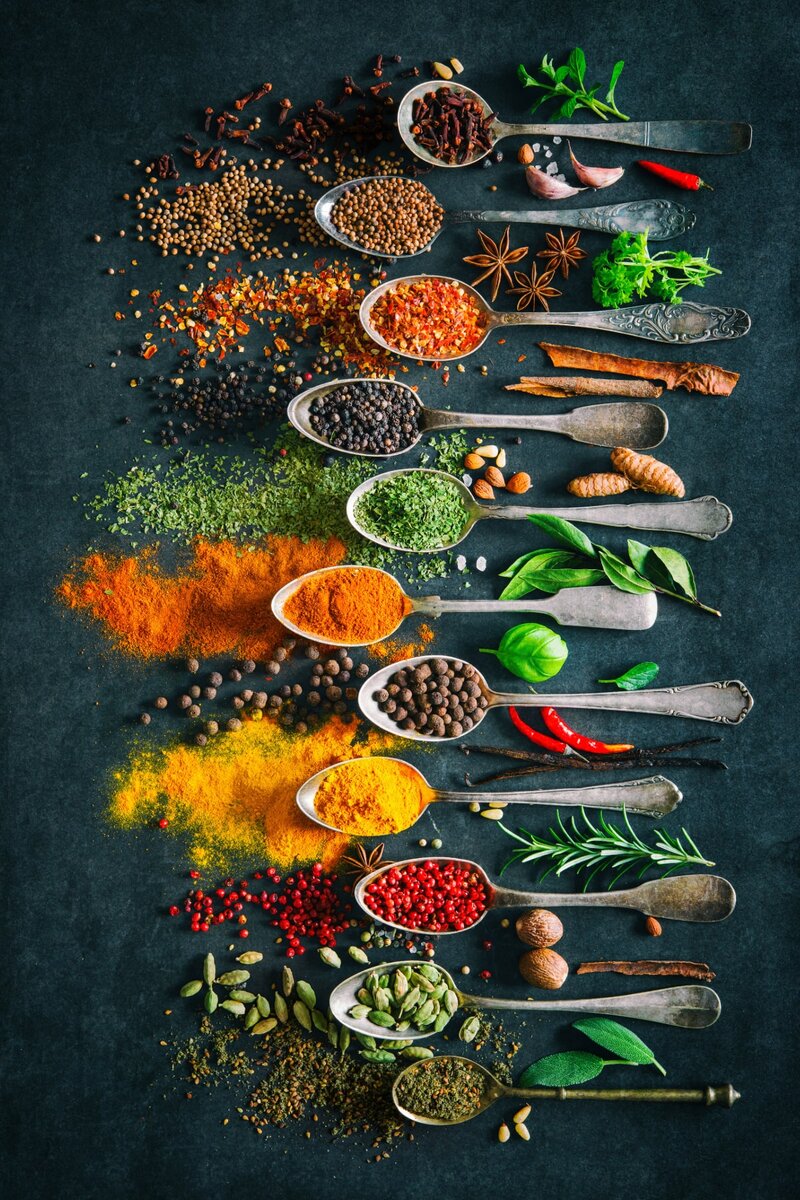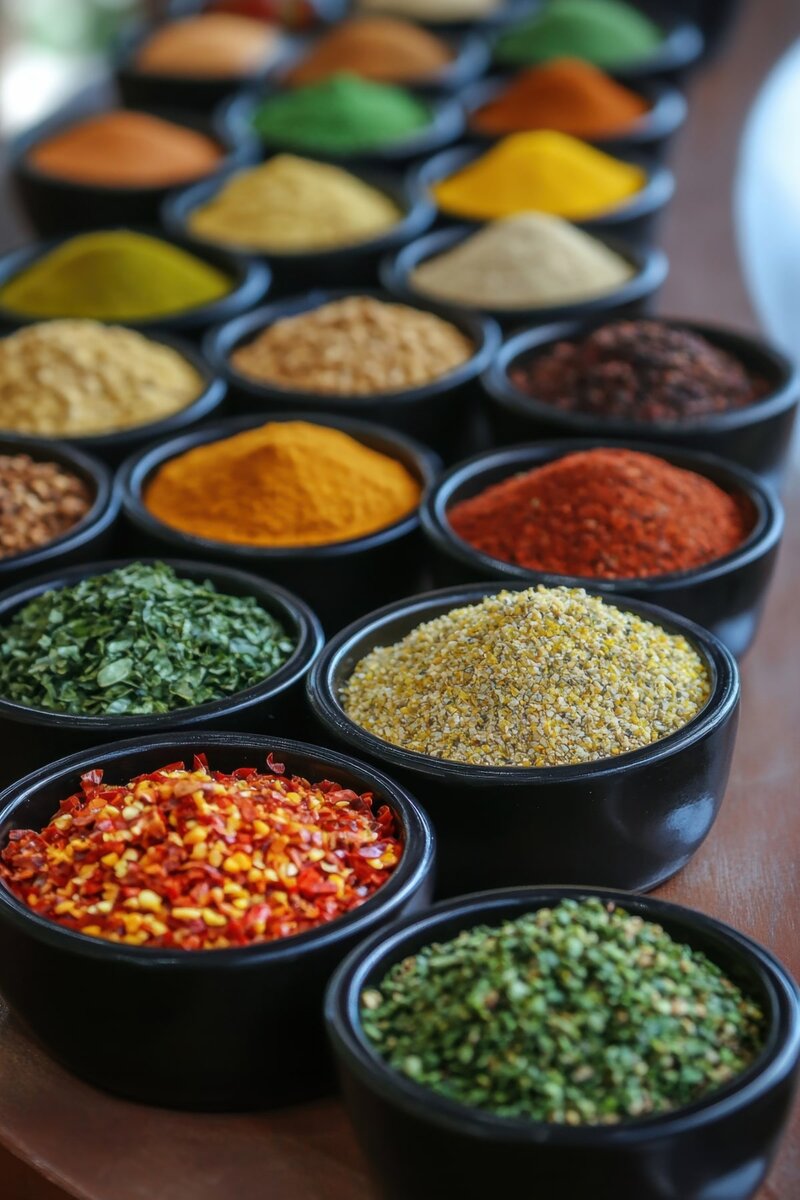Spices were treasured for centuries for the possibility of boosting flavor and helping to preserve foods. Historically, ancient societies used various methods to store and protect spices away from moisture, heat, and direct sunlight, which are capable of depriving spices of potency over the course of time.
When the trade routes expanded, so did the access to the proper preservation of spices. Today, understanding how to preserve spices naturally is still important for home cooks and cooks themselves.

Proper storage keeps the aroma, flavor, and nutrition of spices intact without the use of man-made preservatives. Embracing the preservation of spices through nature keeps the spices flavorful and potent in every dish you prepare.
Observation:
People have always valued spices, but without good storage, they lose their magic. By learning natural ways to protect spices, we can keep their flavors strong and enjoy better meals for longer.
Understanding Spice Storage
Correct storage of spices is the key to having your spices remain fresh and fragrant. Since spices are heat-, light-, moisture-, and air-sensitive and may degrade in potency after a while, proper storage in the pantry keeps the vital oils and native fragrances of spices intact. Do not store spices near the range oven or the dish washer, where temperatures and moisture are higher. The use of tight containers is crucial since they do not allow the entry of air to dry out the spices.
The use of smaller containers instead of large ones also serves to store spices fresher for longer periods since there is less exposure to the outside air whenever you use them. Grasping these fundamental storage guidelines serves to take better care of your spices’ quality naturally so you end up having dishes which are full of strong, enduring flavor. Appropriate storage of spices is an uncomplicated measure which serves to yield greatly in kitchen results.
Ideal Containers for Spices
Choosing the right containers is important to keep your spices fresh and flavorful for longer. The container protects spices from moisture, air, and light, all of which can affect their quality.
Here are three key container features to look for:
-
Airtight seals that prevent air from entering and drying out spices.
-
Dark or opaque materials that block sunlight and protect from light damage.
-
Small-sized containers to reduce the amount of air inside when opened.
Using containers with these features helps preserve the natural oils and aromas in your spices. Glass jars with airtight lids are a popular choice, but some plastics designed for food storage also work well. Proper containers are an easy and natural way to extend the life of your spices, keeping them ready to add bold flavor to your cooking. Investing in the right storage makes a noticeable difference in spice freshness.
Best Natural Preservation Methods
Using natural methods to preserve spices is a gentle and effective way to keep them fresh without chemicals or additives. Keeping spices dry is one of the simplest yet most important preservation techniques. Moisture encourages mold growth and causes spices to clump or lose flavor.
Storing spices with natural moisture absorbers, like small packets of rice or dried beans, helps maintain dryness and prolong freshness. Another natural method is to keep spices away from heat and sunlight, as these can degrade essential oils and reduce aroma. Using a cool, stable environment slows down the natural loss of flavor. For people with limited kitchen space, off-site storage options can help manage excess spice containers or bulk purchases.
Those who value organization often turn to refined space in Carson City, NV with NSA Storage, which offers secure, climate-controlled units to store extra items safely. This solution helps keep your kitchen clutter-free while protecting spices and other goods from environmental damage. By combining natural preservation with smart storage, you can enjoy your spices at their best for longer periods.
Facts:
Moisture is the leading cause of spice spoilage. Natural moisture absorbers can extend spice life by weeks. Keeping spices away from heat preserves flavor and aroma effectively.
Avoiding Common Storage Mistakes
Most individuals unwittingly shorten the lifespan of spices by committing common storage errors. One of the most common blunders is placing spices close to the stove or oven, where heat and moisture can quickly destroy the quality of spices.
High heat makes spices lose the important oils, which carry the flavor and the aroma. Another error is the use of clear containers where sunlight penetrates the spices, hastening the loss of flavor. Another is the use of large containers, which are frequently opened to allow the spices to be repeatedly exposed to the air and suffer oxidation and dulling of the senses of taste. Use of kitchen cupboards or pantry areas away from heat and direct sunlight is better for the preservation of spices.
Other individuals store spices in the refrigerator or freezer but bringing in moisture when containers are being opened results in the clumping of spices or mold. Proper sealing of containers for every use also keeps moisture and oxygen away from spices. The avoidance of these_errors keeps spices strong and flavorful for extended periods of time, which results in easier and happier use of the kitchen.
Research
Industry reports indicate that improper storage can reduce spice potency by up to 60 percent within six months. Studies show that spices stored away from heat and light maintain their flavor twice as long compared to those stored near cooking areas. Experts recommend small, opaque, airtight containers kept in cool, dry places to maximize shelf life and preserve freshness.

Tips for Extending Spice Life
There are various methods of prolonging the life of your spices, which have advantages and disadvantages. A common method is to store spices in glass jars that are airtight. The glass is non-reactive and cleaning is easy, but the glass containers are fragile and heavy.
Others use plastic containers, which are less heavy and less prone to breaking but can absorb smells or stain in the long run. Grinding whole spices only when required is also another method of keeping them fresher but takes additional time and equipment.
Storing spices in an enclosed designated spice drawer or pantry out of the heat and sun is also good but might restrict access to the spices for use in the kitchen. There are advantages to each method based on how you use your kitchen and your personal preference. Having an airtight storage method combined with minimal use of the spices by the air and the sun usually keeps the flavor and the aroma preserved best.
Case study
A home cook switched from pre-ground spices in plastic containers to whole spices stored in airtight glass jars. She ground spices fresh before cooking, resulting in noticeably stronger flavors and longer-lasting freshness. Her kitchen setup, with a dedicated spice cabinet away from heat, further improved spice quality and organization, demonstrating how thoughtful storage and use can maximize spice life naturally.
Final Thoughts on Spice Care
Storing and handling spices to maintain freshness and flavor means taking the proper steps. Storing spices in airtight containers, shielded spices from heat and light, and moisture are important procedures.
Traditional techniques such as moisture absorbers and appropriate placing do enhance the lifespan of spices without the use of chemicals. Continuous observation of your spices ensures the best flavor in your dishes.
Through these simple, natural tricks, you can preserve the vibrant smells and flavors for longer periods, contributing to better-tasting dishes and a valuable collection of spices. Appropriate maintenance also saves the quality and the joy.